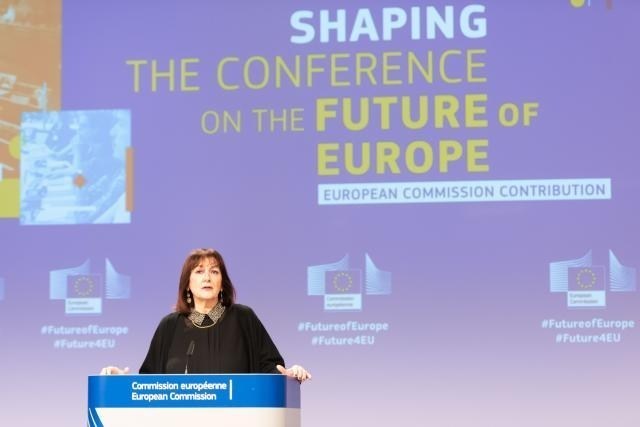The European Parliament and the European Commission released this week the first-ever Eurobarometer survey conducted jointly for the two institutions on citizens’ perceptions of EU and the future of Europe.
The aim of the survey, which was carried out between 22 October and 20 November last year, was to measure the opinions of Europeans, in the EU as a whole and in each Member State, on political participation and democracy, their level of interest in participating in the Conference on the future of Europe, and the role of the EU in tackling the coronavirus pandemic.
Against the backdrop of the coronavirus pandemic, the authors of the Eurobarometer concluded that there is a strong desire for more citizen participation when making decisions about the future of the EU, and evidence shows that this desire has strengthened over the past 12 months because of the crisis.
The survey reveals among others that the vast majority (92%) of the respondents across all Member States demand that citizens' voices are taken more into account in decisions relating to the future of Europe.
Three-quarters of Europeans consider that the Conference on the Future of Europe will have a positive impact on democracy within the EU: 76% agree that it represents significant progress for democracy within the EU (25% ‘totally agree' and 51% ‘tend to agree'), with a clear majority supporting this view in every EU Member State.
Respondents thought that people from all walks of life should be actively involved (51%); with 47% saying young people should have an important role; as well as national governments (42%) and academics, experts, intellectuals and scientists (40%). Just over half of Europeans (51%) would like to get involved themselves.
The EU’s respect for democratic principles and human rights, as well as EU’s economic, industrial and trading power are the EU’s main assets according to respondents, with these issues mentioned by at least three in ten Europeans.
Europeans are also aware of the global challenges facing the EU, and climate change is considered the leading global challenge to the future of the EU (45% mention this), despite recent attention being focused on the more immediate problems of the coronavirus pandemic.
Other challenges noted by significant proportions of respondents include terrorism and health related risks, each mentioned by over one in three Europeans.
Looking to the future, Europeans would like the EU to prioritise in its response to the pandemic a European health policy, investment for treatments and vaccinations and an EU-wide strategy to tackle a similar crisis in the future, each of these mentioned by at least one in four Europeans.
More generally, beyond the more immediate concerns of the pandemic, Europeans would mainly like to see the EU develop more equality in living standards and stronger solidarity between Member States, each of these mentioned by at least three in ten respondents.
That said, voting in European elections is clearly regarded as the most effective way of ensuring voices are heard by decision-makers at EU level with an average score of 55 % but there is wide variation by country. The highest rates are found in Nordic EU countries: 87% in Sweden, 84% in Finland and 83% in Denmark.
“Through many years, the Eurobarometer surveys have shown that half of the Europeans felt that their voices were not heard, the democracy was too weak and the distance too big between the people and the EU,” commented Bent Nørby Bonde, Secretary General of Europe’s People’s Forum, which represents more than 27 technical partners and 60 civil society organisations all over Europe.
“The Europe’s People’s Forum was founded because we strongly believed that by engaging all EU-citizens into EU’s policy making and by ensuring that the EU would listen, we could give everybody a sense of ownership to the future changes and improvements of EU. The new Eurobarometer indicates that we probably were right.”
The Brussels Times

